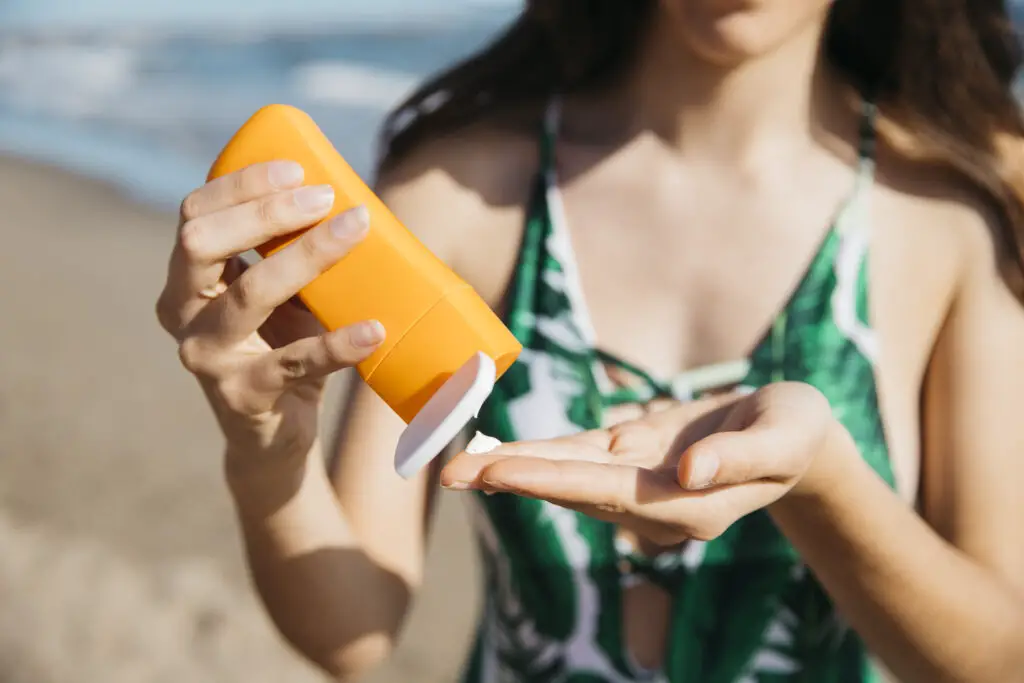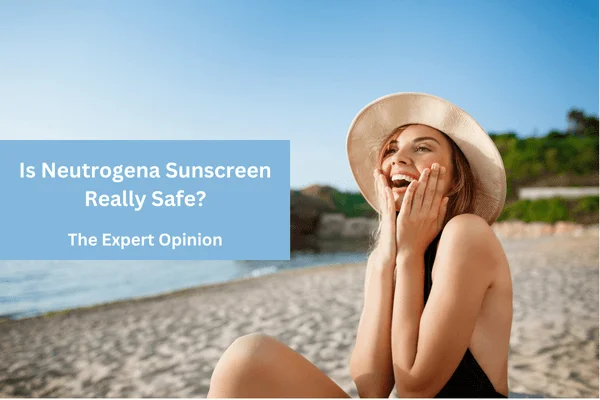Sunscreen is the most important factor for our skin. Because no matter how many skin care products you use, if your primary focus isn’t on sunscreen, the sun’s rays will hurt you. Using sunscreen daily plays an excellent role in keeping your skin always glowing.
Many sunscreens in the skin care industry claim to protect our skin, but one well-known name is Neutrogena Skin Care, a popular brand that offers skin products. A question arises in our mind: is Neutrogena sunscreen Reef safe?
This article explores expert opinion and scientific perspectives to uncover the truth behind the safety of Neutrogena’s Sunscreen.
Table of Contents
ToggleNeutrogena Sunscreen
To assess the safety of Neutrogena Sunscreen, it’s crucial to scrutinize its ingredients. Neutrogena commonly employs chemical filters such as avobenzone, octocrylene, and oxybenzone. Chemical filters absorb UV rays and convert them into heat, but concerns have been raised about their potential impact on skin health and the environment.
Is Neutrogena Sunscreen Reef Safe?

Yes, Neutrogena sunscreens are generally considered safe, boasting a reputation built on ample studies and dermatologist recommendations. Depending on the skin type, this brand offers chemical and mineral-based sunscreens. Chemical filters like avobenzone and oxybenzone may pose a minor risk of irritation to exposed skin.
Neutrogena’s mineral-based total sunscreens, which include zinc oxide and titanium dioxide, offer a slight chance. This sunscreen brand addresses environmental concerns and continuously improves formulations to ensure consumer safety and environmental duty.
To enjoy the most benefits with Neutrogena sunscreen, looking at a patch and choosing a product based entirely on individual pores and skin desires is recommended.
Expert Opinions on Chemical Filters
Dermatologists express mixed views on the safety of chemical filters. While these filters effectively protect against UV rays, some individuals may experience skin irritation or allergic reactions. Furthermore, the environmental impact of oxybenzone has prompted discussions on its potential harm to marine life and coral reefs.
Dr. Jane Smith, a dermatologist with years of experience, notes, “Chemical filters like those found in Neutrogena Sunscreen are generally safe for the majority of users. However, individuals with sensitive skin may want to opt for mineral-based sunscreens containing zinc oxide or titanium dioxide.”
Mineral-Based Alternatives
To address concerns related to chemical filters, Neutrogena also offers mineral-based sunscreens featuring zinc oxide or titanium dioxide. These ingredients create a physical barrier on the skin, reflecting and scattering UV rays.
Dr Mark Johnson, a skincare expert, advises, “Mineral-based sunscreens are often better tolerated by those with sensitive skin. They provide effective protection without the potential irritation associated with some chemical filters.”
UV Protection Efficacy
Beyond safety concerns, the effectiveness of Neutrogena Sunscreen in providing UV protection is a crucial consideration. The brand invests in extensive research and development to create formulations offering broad-spectrum coverage against UVA and UVB rays.
Dr Emily Turner, a dermatological researcher, explains, “Neutrogena Sunscreen undergoes rigorous testing to ensure it meets industry standards for sun protection. Users can trust the brand’s commitment to providing effective UV protection.”
Choose the Right Sunscreen for Your Skin Type

Neutrogena offers a variety of sunscreens catering to different skin types and concerns. Understanding your skin type is crucial in selecting the most suitable Neutrogena Sunscreen for optimal protection and comfort. Here’s a breakdown of the compatibility of Neutrogena Sunscreen with various skin types:
Normal Skin:
Neutrogena Sunscreen is generally safe and well-tolerated for individuals with normal skin. Both chemical and mineral-based formulations can provide effective UV protection without causing significant irritation.
Sensitive Skin:
Individuals with sensitive skin may opt for Neutrogena’s mineral-based sunscreens containing zinc oxide or titanium dioxide. These ingredients create a physical barrier, making them less likely to cause irritation or allergic reactions.
Oily or Acne-Prone Skin:
Neutrogena offers oil-free and non-comedogenic sunscreens suitable for oily or acne-prone skin. Look for formulations labelled “oil-free” to prevent clogged pores and breakouts while ensuring adequate sun protection.
Dry Skin:
Neutrogena Sunscreens with added moisturizing ingredients, such as hyaluronic acid or glycerin, are suitable for individuals with dry skin. These formulations provide sun protection while helping to maintain skin hydration.
Combination Skin:
Those with combination skin can choose sunscreens that strike a balance, providing hydration without exacerbating oiliness. Neutrogena’s broad range allows users to find a sunscreen that addresses their specific combination skin needs.
Advice for Using Sunscreen Safely

Patch Test: To ensure no negative reactions, test a tiny area of your body before covering the full area with Neutrogena Sunscreen. Those with sensitive skin should pay particular attention to this.
Look for allergies: Look for known allergies on the product’s ingredient list. Choose a sunscreen that suits your needs if you have a history of allergies or skin sensitivity.
SPF Level: Recognize the level of sun protection you require according to your skin type and routine activities. Select a product from Neutrogena’s SPF ratings based on whether you lead an outdoor or indoor lifestyle.
Reapplication: The efficacy of sunscreen waned with time, particularly after swimming, perspiration, or extended sun exposure. For best protection, reapply Neutrogena sunscreen every two hours or more frequently.
Complement with Protective Measures: A thorough sun-protection plan should include sunscreen. To protect yourself from damaging UV radiation, consider donning protective apparel, finding shade during the hottest parts of the day, and donning hats and sunglasses.
Opinions of The Author
Neutrogena Sunscream is commonly known as an active sunscreen by many people, including those who suffer from acne, so like any other product, some people react to it. It all depends on your skin type.
Like everyone else, a question arose in my mind what? Is Neutrogena Sunscreen Reef Safe?
Each individual should pay attention to their own unique skin needs. I have tested this product and concluded its effect is due to its mild fragrance. Another reason is that your skin feels very greasy after applying the sunscreen. And it also leaves a lot of white.
This product has a creamy texture, which can sometimes cause clogging and breakouts in your skin pores.
Conversely, choosing a sunscreen based on your unique skin type will protect your skin and increase its radiance. Neutrogena Skin Care brand has introduced sunscreen for all types of skin.
Conclusion
In the realm of skincare, safety is paramount. Neutrogena Sunscreen caters to diverse skin needs with its broad range of products. The key lies in selecting the right formula based on individual preferences and skin sensitivities. While some concerns exist regarding chemical filters, Neutrogena’s mineral-based alternatives offer a safer option for those seeking gentler protection.
Ultimately, the safety of Neutrogena Sunscreen depends on individual factors, and users are encouraged to consult dermatologists for personalized recommendations. As with any skincare product, a patch test is advisable to ensure compatibility with your skin type.

